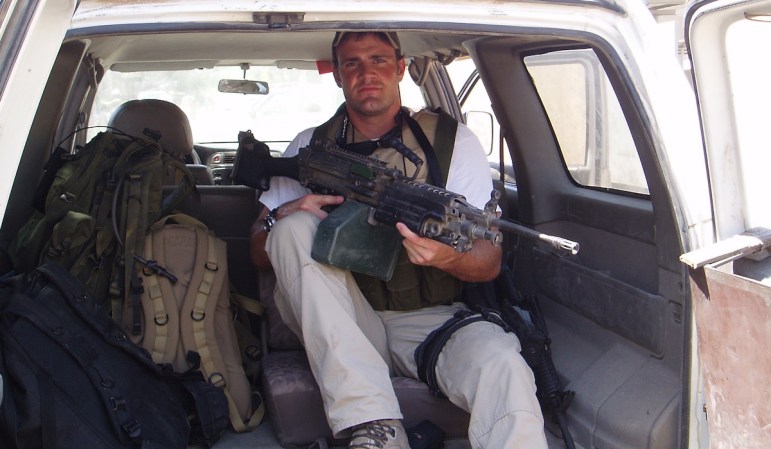Subscribe: Apple Podcasts | Google Play | Stitcher | Spotify
The Gurkha warriors of Nepal are fearless soldiers who famously serve in the British and Indian militaries. Their reputation for bravery, fighting ability, and heroism dates back to the Middle Ages.
Staff Field Marshal Sam Manekshaw of the Indian Army, once said, “If a man says he is not afraid of dying, he is either lying or is a Gurkha.” A fitting statement for a force who’s motto is, “better to die than to be a coward.”
Don’t miss this episode about Gurkha badassery!
Hosted by:
- Logan Nye: Army veteran and associate editor
- Blake Stilwell: Air Force veteran and managing editor
- Tracy Woodward: Benevolent smartass and Social Media coordinator
- Orvelin Valle (AKA O.V.): Navy veteran and Social Media editor
Selected links and show notes from the episode
- [02:05] The reason why the Gurkhas fight for England.
- [05:30] Famous Gurkha battles.
- [08:10] Gurkhas and the Falklands War.
- [09:20] The history of the Gurkha Kukri knife.
- NOTE: O.V. was wrong about the bull decapitation being part of a Gurkha ceremony. The animal sacrifice video he was referencing during the podcast is part of the Gadhimai Festival in Bariyapu, Nepal. But, the Kukri knife IS used during the animal beheadings.
- The Gurkha kukri is designed for absolute devastation
- [16:20] That day a lone Gukha took out 30 Taliban using every weapon within reach.
- [19:55] Conspicuous Cross vs. Victoria Cross and the equivalent in the United States.
- [21:25] This elite Nepalese warrior fought 40 train robbers all by himself.
- [24:55] Gurkha selection.
- [28:30] Gurkhas in the Indian military.
- [32:00] British Gurkha pension.
- Gurkha Welfare Trust: a charity that provides financial, medical and development aid to Gurkha veterans, their families and communities.
- [33:40] Gurkhas in the Special Air Service (SAS), a special forces unit of the British Army.
Music licensed by Jingle Punks
- Step Off-JP
- Heavy Drivers-JP










